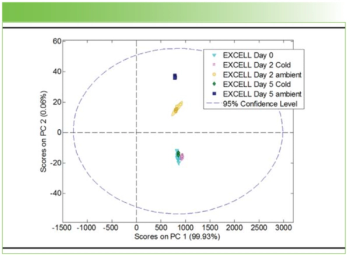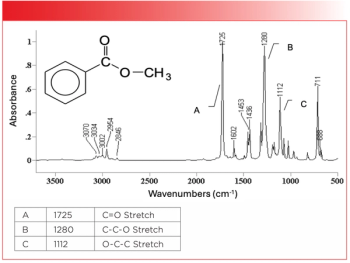
Ellis R. Lippincott Award to Be Presented to Ji-Xin Cheng at SciX 2019
The Ellis R. Lippincott Award will be presented to Ji-Xin Cheng, a professor of biomedical engineering at Boston University, on Tuesday, October 15, at SciX 2019 in Palm Springs, California.
The Ellis R. Lippincott Award will be presented to Ji-Xin Cheng, a professor of biomedical engineering at Boston University, on Tuesday, October 15, at SciX 2019 in Palm Springs, California. Cheng will give a plenary talk, and The award, which is awarded annually by the Optical Society, the Coblentz Society, and the Society for Applied Spectroscopy, is given to an individual who has made significant contributions to the field of vibrational spectroscopy.
Cheng is advancing biomedical research by developing techniques such as midinfrared photothermal imaging and Raman spectromicroscopy. He received his PhD from the University of Science and Technology of China, and joined Purdue University (West Lafayette, Indiana) in 2003 as an assistant professor at the Weldon School of Biomedical Engineering in the Department of Chemistry. He was promoted to associate professor in 2009, and full professor in 2013. He joined Boston University as the Inaugural Moustakas Chair Professor in Photonics and Optoelectronics in 2017.
Cheng received the Craver Award from the Coblentz Society in 2015. He and his team have been at the most forefront of the field of chemical imaging in innovation, discovery, and clinical translation. He has authored more than 230 peer-reviewed articles with an h-index of 72 His research has been supported by more than $25 million in funding from federal agencies and private foundations. In 2014 he co-founded Vibronix Inc., which has the mission of saving lives through medical device innovations. Additionally, Cheng is a Fellow of Optical Society of America and a Fellow of American Institute of Medicine and Biological Engineering.
To see Spectroscopy’s interview with Cheng on advancing biomedical research with new infrared and Raman microscopy techniques, please click
Newsletter
Get essential updates on the latest spectroscopy technologies, regulatory standards, and best practices—subscribe today to Spectroscopy.




